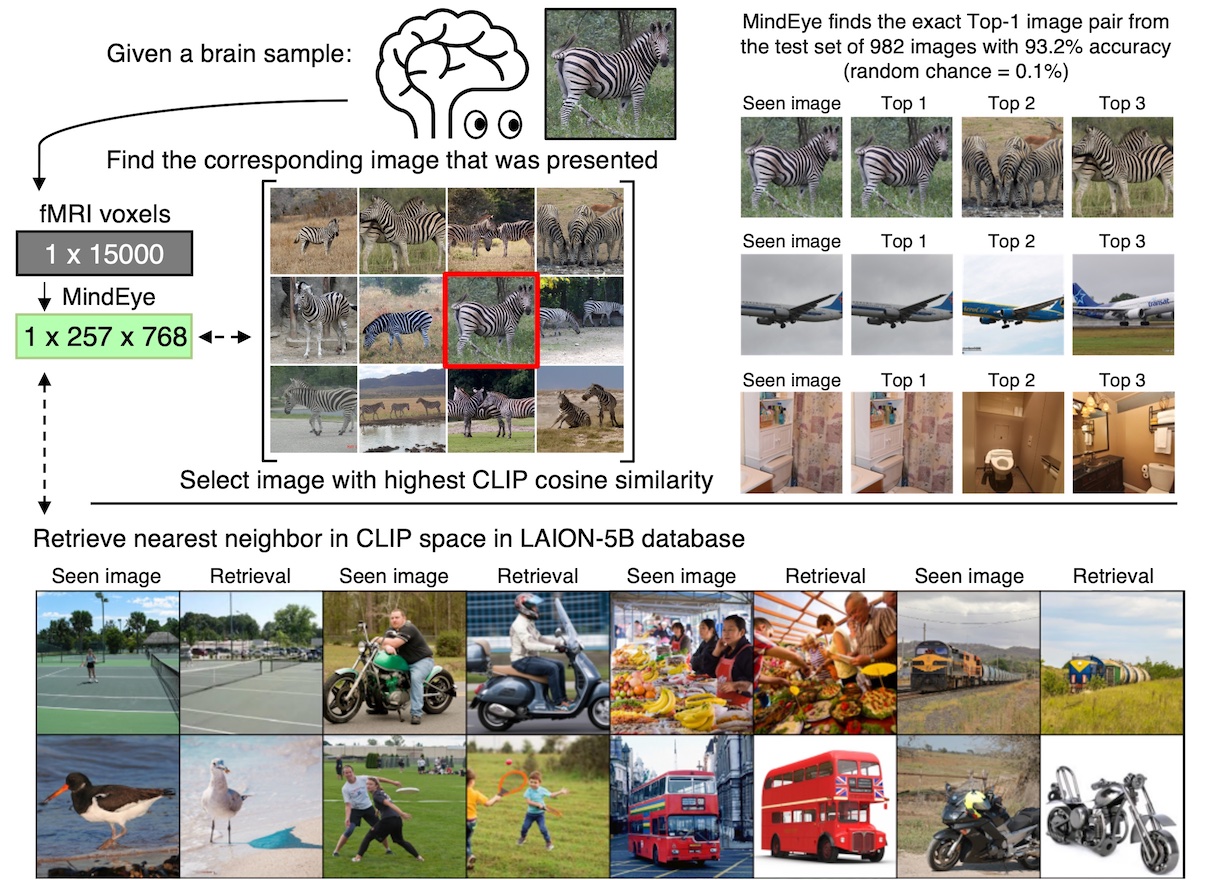MedARC has developed MindEye, an AI model that can analyze fMRI scans and retrieve the exact original image the person was looking at, even if the images are similar. The model can also identify similar images from a large image database. While impressive, the fMRI data collection process and limited training data are challenges. Nevertheless, this research has potential applications in clinical diagnosis and communication with patients with locked-in syndrome. MedARC acknowledges the ethical and privacy concerns associated with accurately reconstructing perception from brain activity.

Introducing MindEye: AI Solution for Image Retrieval from Brain Scans
MedARC, a leader in AI for medicine, has developed MindEye, an innovative AI model that can determine what an individual has been looking at based on their brain activity. This groundbreaking fMRI-to-image AI model maps functional magnetic resonance imaging (fMRI) scans to OpenAI’s CLIP image space.
Key Features:
- MindEye can analyze fMRI scans and retrieve the exact original image the person was looking at, even if the images are similar.
- It achieves an impressive accuracy rate of 93.2% in identifying the correct image.
- MindEye can also identify similar images from a vast image database containing billions of images.
By translating fMRI scans to the CLIP image space, MindEye enables the use of pretrained image generation models like Stable Diffusion. MedARC has utilized Versatile Diffusion to recreate the original image observed by the subject.
While MindEye is not yet perfect in this aspect, it showcases remarkable results compared to previous studies.
Potential Applications:
The ability to understand how individuals perceive visual stimulation has immense value for neuroscientists. MindEye’s capabilities open up possibilities in various fields:
- Clinical Diagnosis: By presenting an image to a patient, scanning their brain, and reconstructing their perception of the image, MindEye can potentially aid in diagnosing conditions such as major depressive disorder.
- Communication with Locked-In Syndrome Patients: MindEye’s research may contribute to improved communication with individuals suffering from locked-in syndrome.
However, to fully realize the benefits of these applications, advancements in brain-computer interfaces or non-invasive wearables are necessary to eliminate the need for lengthy MRI sessions.
MedARC acknowledges that their research also raises important ethical and privacy concerns. The ability to reconstruct perception from brain activity raises questions about the broader societal impacts and the need to protect individual thoughts.
Unlock the Power of AI for Your Company
If you want to leverage AI to stay competitive and transform your company, MindEye’s image retrieval capabilities can be a game-changer. Discover how AI can redefine your way of work by following these steps:
- Identify Automation Opportunities: Locate key customer interaction points that can benefit from AI.
- Define KPIs: Ensure your AI initiatives have measurable impacts on business outcomes.
- Select an AI Solution: Choose customizable tools that align with your needs.
- Implement Gradually: Start with a pilot, gather data, and expand AI usage judiciously.
For AI KPI management advice and continuous insights into leveraging AI, connect with us at hello@itinai.com or stay tuned on our Telegram channel or Twitter @itinaicom.
Spotlight on a Practical AI Solution: AI Sales Bot
Consider implementing the AI Sales Bot from itinai.com/aisalesbot. This AI-powered solution automates customer engagement 24/7 and manages interactions across all stages of the customer journey. Redefine your sales processes and customer engagement with AI. Explore solutions at itinai.com.
List of Useful Links:
- AI Lab in Telegram @aiscrumbot – free consultation
- MindEye retrieves and reconstructs images from brain scans
- DailyAI
- Twitter – @itinaicom



























